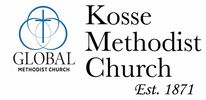According to Pew Research Center, the number of Americans who are of non-Christian faith has grown from 4.7% in 2007 to 5.9% in 2014. The growth of those who belong to non-Christian faiths has come mostly from Muslims and Hindus. In 2014, 1.9% of the American population was Jewish; .9% was Muslim; .7% was Buddhist and .7% was Hindu. In addition, those persons who counted themselves as atheists, agnostics or nothing in particular grew from 16.1% in 2007 to 22.8% in 2014 in the United States. The overall percentage of American Christians dropped from 78.4% in 2007 to 70.6% in 2014.
So, how do American Christians relate to people in a more diverse religious population? What exactly do these other faiths profess? These are a few of the questions to be explored in the six-week study "Christianity and World Religions: Wrestling with Questions People Ask" that was written by Rev. Adam Hamilton, a United Methodist pastor in Leawood, Kansas. The study explores the religions of Hinduism, Buddhism, Islam, Judaism and Christianity and how Christians may relate to people who profess divergent beliefs. A 15-minute DVD presentation from Rev. Hamilton begins each session that starts on Wednesday, March 30 at 5:30 PM at First United Methodist Church, Kosse.
Join us for this timely and informative study.
.
So, how do American Christians relate to people in a more diverse religious population? What exactly do these other faiths profess? These are a few of the questions to be explored in the six-week study "Christianity and World Religions: Wrestling with Questions People Ask" that was written by Rev. Adam Hamilton, a United Methodist pastor in Leawood, Kansas. The study explores the religions of Hinduism, Buddhism, Islam, Judaism and Christianity and how Christians may relate to people who profess divergent beliefs. A 15-minute DVD presentation from Rev. Hamilton begins each session that starts on Wednesday, March 30 at 5:30 PM at First United Methodist Church, Kosse.
Join us for this timely and informative study.
.

 RSS Feed
RSS Feed